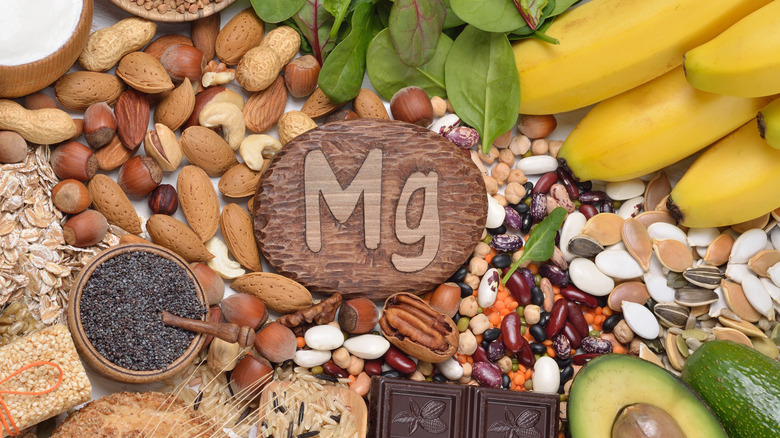This Is What Happens When You Don't Have Enough Magnesium
Magnesium is a mineral the body needs to perform many functions that include the regulation of blood sugar levels, blood pressure, and muscle and nerve function. Magnesium also helps the body process vitamin D, and low levels of it may even make vitamin D ineffective (via American Association for the Advancement of Science). Studies show it is effective in treating arrhythmia, migraine, and severe asthma (via American Family Physician).
Many foods, including pumpkin seeds, almonds, spinach, cashews, and peanuts, contain magnesium. Some foods are fortified with the nutrient, and various forms of magnesium are sold in supplement form (via Cleveland Clinic).
Despite the fact that magnesium is readily available, almost 75% of the world population is deficient in the mineral (via PubMed). Some conditions, such as type 2 diabetes, gastrointestinal disorders, and being pregnant can increase the chances of developing a magnesium deficiency. Additionally, being elderly, taking diuretics and antibiotics, and being hospitalized also raise the odds of being deficient (via Medical News Today).
Signs of deficiency
Early signs of magnesium deficiency include nausea, vomiting, fatigue, muscle weakness, and loss of appetite. Advanced symptoms of a deficiency might include numbness, tingling, abnormal heart rhythms, and seizures.
Because magnesium is needed for bone strength, a lack of it can increase the risk for osteoporosis. While there are other factors that contribute to the disease, a deficiency in magnesium can increase bone weakness and lower levels of calcium in the blood (via Healthline).
A lack of magnesium might contribute to mental health problems. One study showed that low levels of the mineral increased the risk for depression. Low levels of magnesium may also raise the risk of high blood pressure, also increasing the risk for heart disease. In addition, asthma is linked to magnesium deficiency.
To avoid a low levels of magnesium, adult men should aim for 400 to 420 micrograms per day and women should get anywhere from 320 to 360 micrograms (via Healthline).


